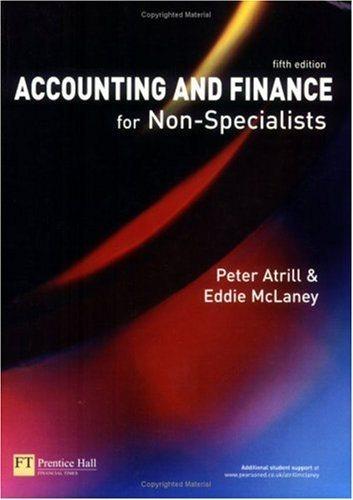Raphael Ltd is a small engineering business that has annual credit sales revenue of 2.4 million. In
Question:
Raphael Ltd is a small engineering business that has annual credit sales revenue of
£2.4 million. In recent years, the business has experienced credit-control problems. The average collection period for credit sales has risen to 50 days even though the stated policy of the business is for payment to be made within 30 days. In addition, 1.5 per cent of sales are written off as bad debts each year.
The business has recently been in talks with a factor, which is prepared to make an advance to the business equivalent to 80 per cent of receivables, based on the assumption that customers will, in future, adhere to a 30-day payment period. The interest rate for the advance will be 11 per cent a year. The trade receivables are currently financed through a bank overdraft, which has an interest rate of 12 per cent a year. The factor will take over the credit-control procedures of the business and this will result in a saving to the business of £18,000 a year; however, the factor will make a charge of 2 per cent of sales revenue for this service. The use of the factoring service is expected to eliminate the bad debts incurred by the business.
Required:
Calculate the net cost of the factor agreement to the business and state whether or not the business should take advantage of the opportunity to factor its trade debts.
(Hint: To answer this question, compare the cost of existing trade policies – cost of investment in trade receivables and cost of bad debts – with the cost of using a factor
– interest and other charges less the credit control savings.)
Step by Step Answer:

Accounting And Finance For Non Specialists
ISBN: 9780273702443
5th Edition
Authors: Dr Peter Atrill, Eddie Mclaney





